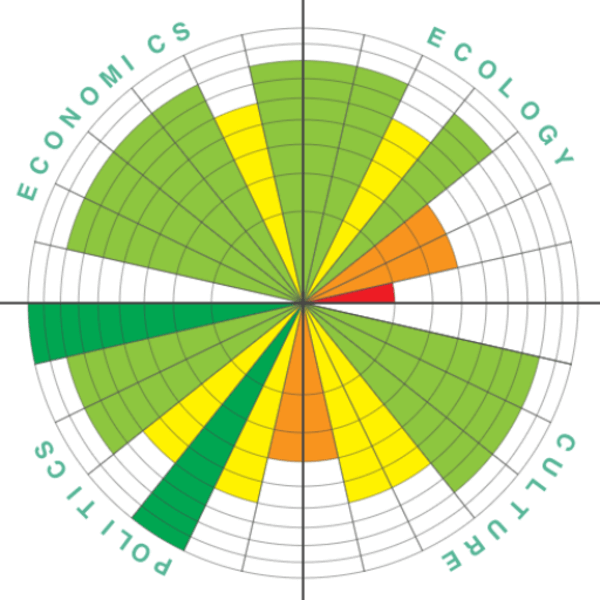Food is transversal across our City work and for this reason, much of the food systems work is advocacy and building knowledge. We do this through a Food Systems Working Group that includes internal and external role players where we build knowledge, network and leverage City work towards food outcomes.
We also convene a Food Indaba (meeting) internal to the City and Food Systems Community of Practice to co-ordinate and promote research. Innovations are embedded in the resilience and systems approach that we use to test scenarios.
We have tested a variety of scenarios such as unrest, heatwave, load shedding (energy) and global conflict (Russia/Ukraine crisis). Through this work we have built knowledge of the food system and determined vulnerability and from there, worked with key players to highlight the risk to enable appropriate action.
The City joined the Rockefeller 100 Resilient Cities Programme at a time when the City was experiencing its worst ever drought. Part of the resilient cities work included the completion of a City Resilience Index benchmarking process. Food insecurity emerged as a key vulnerability and a food systems programme as proposed as a measure to address this vulnerability.
It seeks to address the double burden of disease caused by food insecurity that results in child wasting and stunting, overweight and obesity that drive the high incidence of NCDs. The mandate does include humanitarian relief ,(food parcels etc.) we seek to improve access through markets and trading, spatial planning etc.
Themes that drive our actions include resilience, governance, food environments, health, economy and health. Primarily (and where we have had the most success) is building knowledge within the organisation around the connection between our work, food systems activities and outcomes.
Food Systems Programme has been developed into an Implementation Programme. Integration into the Integrated Development Plan (5-year).
AfriFOODLinks is a significant achievement that will provide resources to better develop informal food access through markets and trad, which is how 60-70% of Capetonians access their food.
Food waste is another significant issue that has made progress and work is underway to determine the potential for solar cold storage that will improve the quality of fresh produce and reduce food waste. Important work is also underway to develop nutrition hubs including early childhood development centres, community kitchens and food gardens. This work is nascent but is growing momentum.
Ongoing participation in the Food Dialogues as partners has provided opportunities to build networks, knowledge and influence thinking around food with multiple partners including children and youth.
We recognise that shocks and stresses affect vulnerable communities most acutely. For this reason, we developed a vulnerability viewer which is an online platform to help plan responses to shocks and stresses. Food infrastructure (NGOs, food gardens, community kitchens, early childhood development centres, warehouses and distribution centres) are spatially located using GIS and is comparable against vulnerability data. This platform assisted to inform food distribution during COVID-19.


